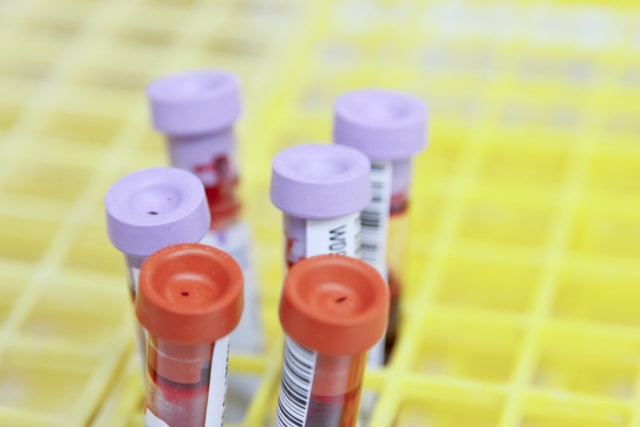In a groundbreaking development, researchers have unveiled a new blood test for Alzheimer’s disease that boasts a 90% accuracy rate, surpassing the performance of existing diagnostic methods. This innovative test could transform how Alzheimer’s is detected and managed, providing a quicker and less invasive option for early diagnosis.
The Need for Better Alzheimer’s Diagnostics
Alzheimer’s disease, the most common form of dementia, affects millions of people worldwide. Early detection is crucial for managing the disease, but traditional diagnostic methods, such as cognitive tests, brain imaging, and cerebrospinal fluid analysis, often fall short in accuracy, are expensive, or are invasive. The development of a reliable blood test addresses these challenges, offering a more accessible and efficient diagnostic tool.
How the Alzheimer’s Blood Test Works
The Alzheimer’s blood test works by detecting specific biomarkers associated with the disease. These biomarkers, including amyloid-beta and tau proteins, are indicators of the pathological changes occurring in the brain. The test measures the levels of these proteins in the blood, providing a clear indication of whether an individual is at risk or in the early stages of Alzheimer’s.
Superior Accuracy and Benefits
The 90% accuracy rate of this blood test marks a significant improvement over other diagnostic methods. This high level of precision reduces the likelihood of false positives and negatives, ensuring that more individuals receive the correct diagnosis. The benefits of this advancement include:
Early Detection: Enables timely intervention and management, potentially slowing disease progression.
Non-Invasive: Offers a less invasive alternative to cerebrospinal fluid analysis.
Cost-Effective: Reduces the financial burden on patients and healthcare systems compared to expensive imaging techniques.
Accessible: Easier to administer, making it more accessible to a broader population.
Implications for Treatment and Research
Early and accurate diagnosis of Alzheimer’s can significantly impact treatment outcomes. Patients diagnosed in the early stages can benefit from current treatments more effectively and participate in clinical trials for new therapies. Additionally, this blood test can facilitate large-scale screening and research, furthering our understanding of the disease and accelerating the development of new treatments.
Future Prospects
While this Alzheimer’s blood test is a promising advancement, ongoing research and clinical validation are essential to ensure its widespread adoption. Future studies will focus on refining the test’s accuracy, understanding its full potential in diverse populations, and integrating it into routine clinical practice.
The development of a highly accurate Alzheimer’s blood test represents a major milestone in the fight against dementia. By offering a more efficient, cost-effective, and accessible diagnostic tool, this innovation holds the potential to improve the lives of millions affected by Alzheimer’s disease. As research continues, the hope is that this breakthrough will lead to better management, treatment, and ultimately, a cure for Alzheimer’s.












